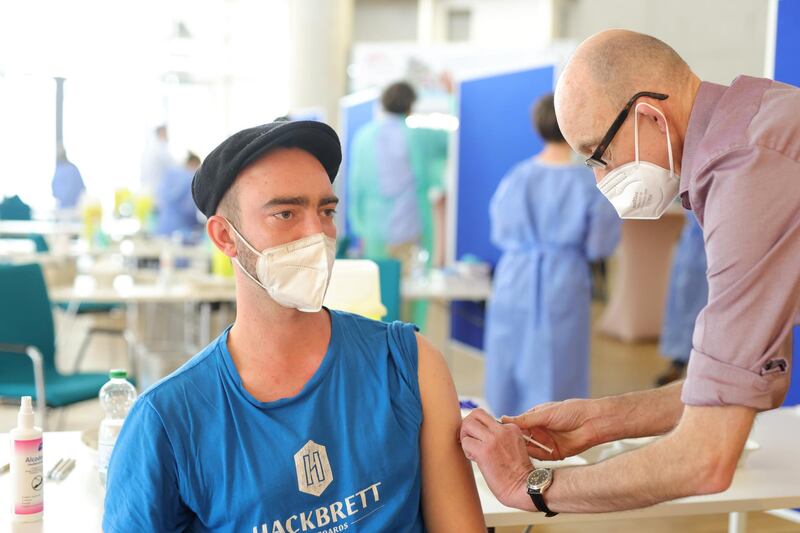The EU has not made any new orders for AstraZeneca vaccines beyond June when its contract ends, European Internal Market Commissioner Thierry Breton said on Sunday, after the bloc signed a deal with Pfizer and BioNTech.
Mr Breton said he expected the cost of Pfizer-BioNTech's vaccines to be higher than the earlier versions.
The commission last month launched legal action against AstraZeneca for not respecting its contract for the supply of Covid-19 vaccines, and for not having a "reliable" plan to ensure timely deliveries.
"We did not renew the order after June. We’ll see what happens," Mr Breton told France Inter radio.
He did not rule out a possible renewal later.
Germany made the vaccine available to all age groups last week after struggling to persuade a sceptical public to take the shot.
It also lifted age limits on the Johnson & Johnson vaccine on Monday, with most people over 60 expected to be vaccinated by June.
Concerns have risen about possible side-effects of the AstraZeneca Covid-19 vaccine.
Europe's medicine regulator on Friday said it was reviewing reports of a rare, nerve-degenerating disorder in people who received the shots.
There were earlier concerns that the vaccine might have caused very rare blood-clotting cases.
The regulator has maintained that the benefits of AstraZeneca's vaccine outweigh any risks, but several European countries have limited its use to older age groups or suspended it altogether.
French President Emmanuel Macron welcomed the move towards what he regards as more effective vaccines against new variants of Covid-19, calling it "pragmatic".
"We are vaccinating with this vaccine [AstraZeneca] in France and in Europe," Mr Macron told the European Parliament in Strasbourg.
"We must continue to do this because it will help us get out of the crisis.
"But for future orders, in order to respond in particular to variants, we see that other vaccines are now more effective, so this signals a European pragmatism that I welcome."
The EU's contract with Pfizer-BioNTech is for 1.8 billion doses of Covid-19 vaccines for 2021-2023, to cover booster shots, donations and resale of doses, the European Commission said on Friday.
An increase in prices for second-generation vaccines could be justified by the extra research required and changes to industrial equipment, Mr Breton said.
"There may be a little extra cost but I will let the competent authorities unveil it in due course," he said.
More on coronavirus
[ Coronavirus: UAE reports lowest daily cases in four months ]
[ US airports record busiest day for passenger travel since the start of the pandemic ]
[ Bahrain announces Covid-19 booster shots after successful vaccine rollout ]








